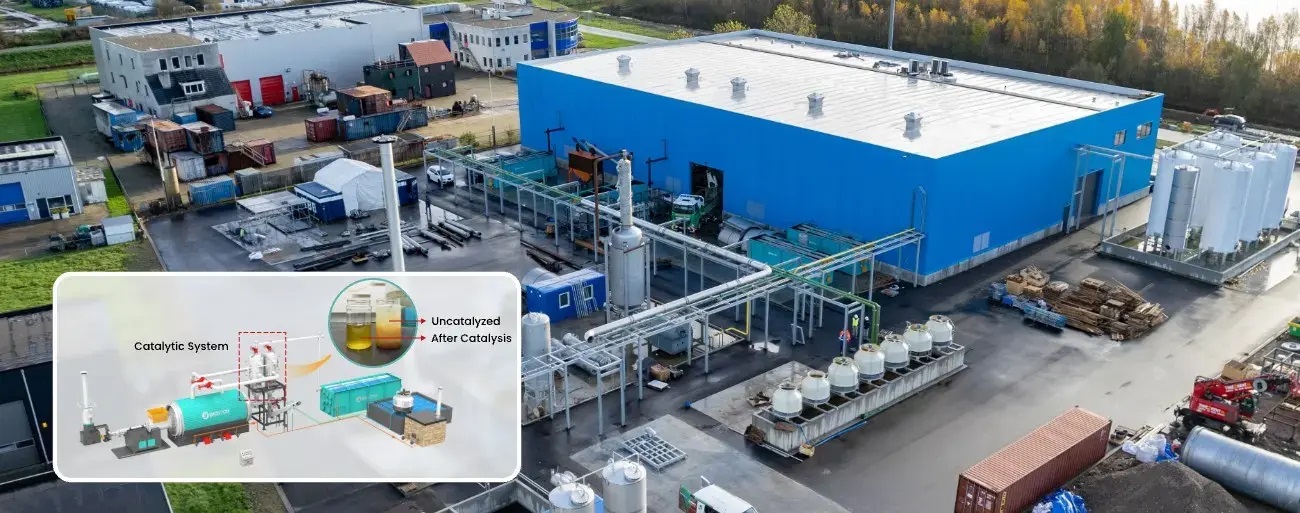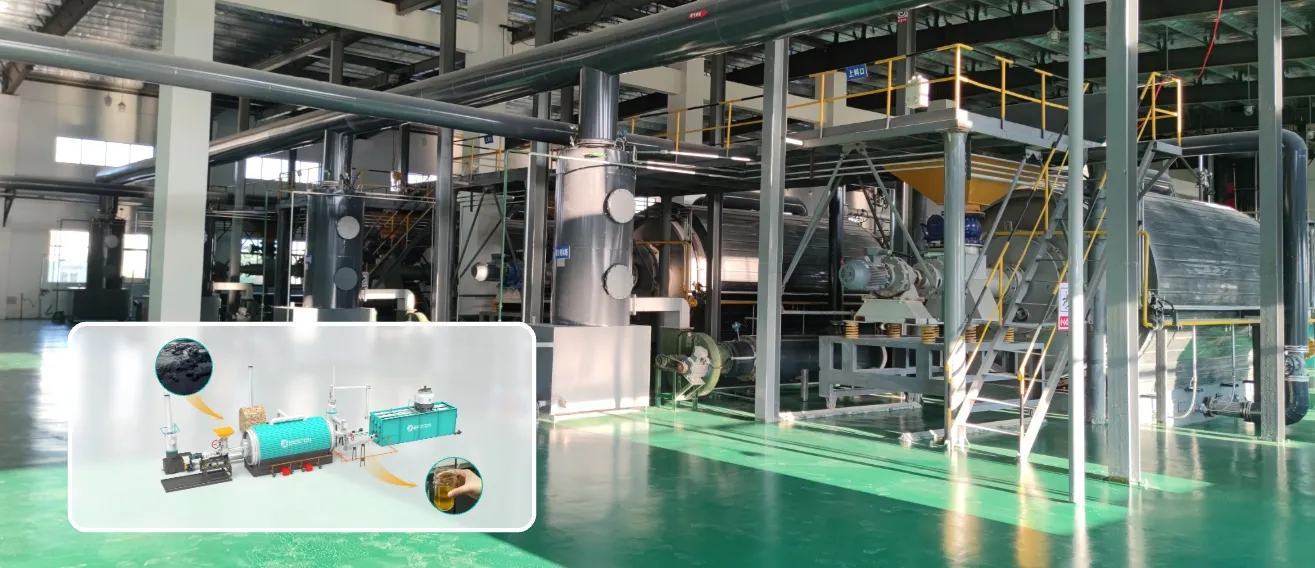The need for sustainable solutions to manage waste and produce renewable energy has never been greater. With plastic waste accumulating at an alarming rate and environmental challenges worsening, industries are increasingly turning to advanced technologies that can convert waste materials into valuable products. One such company, Beston Group, has emerged as a leader in offering innovative solutions for waste-to-energy conversion. This article explores Beston Group’s plastic-to-fuel machine, thermal desorption unit, and the cost structure of their pyrolysis plants, providing a comprehensive look at how these technologies can play a pivotal role in solving waste management issues while promoting sustainable energy practices.
Beston Group: A Pioneer in Waste-to-Energy Technologies
Beston Group is a global leader in providing cutting-edge waste-to-energy solutions. With decades of experience in the industry, Beston has developed a wide range of machines and systems designed to address the challenges of waste disposal, recycling, and energy production. The company’s product portfolio includes plastic-to-fuel machines, thermal desorption units, and pyrolysis plants, each designed to process various types of waste and convert them into reusable products like fuel, oil, gas, and carbon black.
By utilizing pyrolysis technology and other advanced processes, Beston Group has positioned itself at the forefront of the green energy revolution. Their machines not only help mitigate the growing waste problem but also enable the creation of clean energy, making them a valuable resource for industries looking to adopt more sustainable practices.
Turning Plastic Waste into Valuable Energy
Plastic pollution has become one of the most pressing environmental issues of our time. With billions of tons of plastic waste generated every year, the need for effective plastic recycling and disposal methods is critical. The plastic-to-fuel machine offered by Beston Group provides an innovative solution to this problem by converting waste plastics into usable fuel, including diesel, gasoline, and other forms of liquid fuel.
How Does the Plastic-to-Fuel Machine Work?
The plastic-to-fuel process relies on a technology called plastic pyrolysis, which involves the thermal decomposition of plastics in the absence of oxygen. This process breaks down the plastic polymers into smaller molecules that can be further processed into various forms of energy.
- Feeding the Plastic Waste: Waste plastics are first sorted and fed into the plastic pyrolysis reactor. The types of plastic that can be processed include polyethylene (PE), polypropylene (PP), polystyrene (PS), and others. The waste materials are carefully prepared to ensure that the reaction goes smoothly.
- Pyrolysis Reaction: Once inside the reactor, the plastic waste is heated to high temperatures (around 400°C to 450°C) in a sealed, oxygen-free environment. This causes the plastic to break down into gas, oil, and carbon black.
- Condensation and Collection: The gases produced during pyrolysis are then cooled and condensed into liquid fuel. This fuel can be further refined and used for various industrial applications, while the remaining solid byproduct, carbon black, can be used in the manufacturing of rubber products or as a fuel source itself.
- Gas Collection and Use: The gases that are not condensed into liquid fuel can be collected and used as an energy source to power the pyrolysis process, making the system energy-efficient and sustainable.
Advantages of the Plastic-to-Fuel Machine
- Environmental Benefits: By converting plastic waste into fuel, Beston’s plastic-to-fuel machine helps reduce plastic pollution and minimizes the need for landfills and incineration.
- Energy Production: The conversion process generates usable fuel that can replace traditional fossil fuels, thus promoting the use of renewable energy.
- Waste Reduction: The system efficiently processes various types of plastic waste, helping to tackle the growing global issue of plastic accumulation.
- For more information on the plastic-to-fuel machine, visit the Beston plastic pyrolysis plant page.

TDU: A Solution for Oil Sludge Treatment
Another standout technology from Beston Group is the thermal desorption unit. This unit is designed to treat hazardous waste materials, such as oil sludge, by using high temperatures to separate contaminants from the waste. The process of thermal desorption is primarily used to remove oil and other organic substances from contaminated solids, helping to reduce environmental pollution and recover valuable resources.
How Does the Thermal Desorption Unit Work?
- Waste Pre-Treatment: The waste materials, which could include oil sludge, soil contaminated with hydrocarbons, or other organic waste, are first pre-treated to ensure proper processing. The thermal desorption unit works best with materials containing a high level of hydrocarbons.
- Heating Process: The contaminated waste is then heated to high temperatures (typically between 300°C and 600°C) in a controlled environment. This causes the organic compounds, including oil, to vaporize and separate from the solid material.
- Vapor Collection: The vapors are collected and condensed into liquid form, allowing for the recovery of valuable oil or fuel that can be used in various industries.
- Solid Residue: The remaining solid material, which is typically free from contaminants, can be safely disposed of or used in other industrial applications.
Benefits of the Thermal Desorption Unit
- Effective Contaminant Removal: The thermal desorption unit is highly effective at removing oil and other contaminants from waste materials, ensuring cleaner and safer disposal.
- Resource Recovery: The process allows for the recovery of valuable resources, such as oil, that can be reused, helping to reduce the need for virgin materials.
- Environmental Protection: By treating hazardous waste in a controlled environment, the thermal desorption unit helps prevent soil and water contamination.

Pyrolysis Plant Price: Understanding the Cost Structure
When considering the implementation of pyrolysis technology, one of the most important factors to assess is the price of the pyrolysis plant. Beston Group provides a range of pyrolysis plant options designed to meet different needs, from small-scale operations to large industrial facilities.
Factors Influencing Pyrolysis Plant Price
Several factors can influence the cost of a pyrolysis plant, including:
- Scale of the Plant: The capacity of the plant determines its pyrolysis plant price. Larger plants capable of processing higher volumes of waste will generally have a higher price.
- Technology and Features: The level of automation, the type of waste the plant can process, and the specific technologies used (such as advanced distillation or gas cleaning systems) can also impact the price.
- Material and Build Quality: The materials used in construction and the durability of the plant can affect the overall cost. High-quality, durable components may raise the price, but they also improve the plant’s longevity and efficiency.
- Location: Shipping and installation costs can vary depending on the location of the plant.
- Beston offers competitive pricing for its pyrolysis plants and provides tailored solutions to meet the needs of different industries and waste management requirements. The cost structure is designed to ensure high returns on investment by providing long-term operational efficiency and environmental benefits.
A Sustainable Future with Beston Group
Beston Group’s commitment to sustainability, innovation, and environmental protection is evident in their wide range of waste-to-energy technologies. Whether through the plastic-to-fuel machine, thermal desorption unit, or pyrolysis plant, Beston offers effective solutions that help reduce waste, recover valuable resources, and generate clean energy.
By embracing these advanced technologies, businesses and governments can make significant strides toward achieving their sustainability goals while contributing to a cleaner, more efficient world. Beston Group’s solutions provide a unique opportunity to tackle pressing environmental challenges, promote waste-to-energy systems, and drive the transition to a more sustainable future.